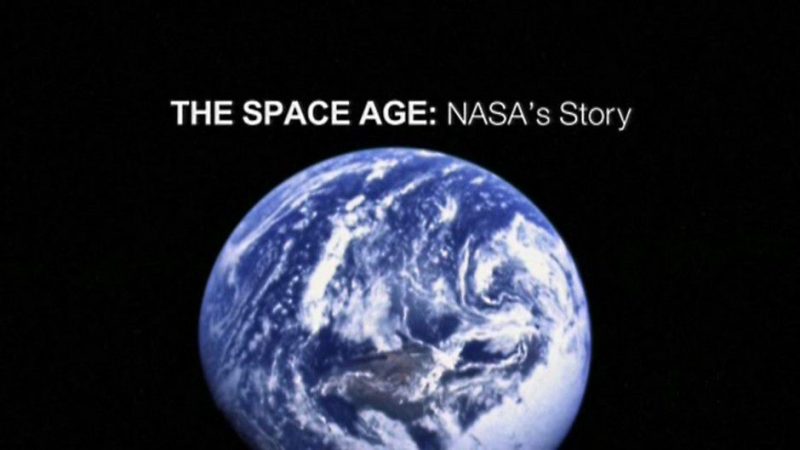Wonders of the Universe episode 3: In the third episode, Professor Brian Cox delves into the captivating narrative of gravity, the force responsible for shaping the vast expanse of the universe. Gravity, despite its seemingly familiar nature, remains one of the most enigmatic and awe-inspiring forces known to humankind. Embarking on a zero-gravity flight, Brian immerses himself in the sensation of weightlessness, contemplating the profound impact gravity has exerted on our surrounding world.
However, the reach of gravity extends far beyond our immediate surroundings. It serves as the grand conductor of the cosmos, governing our orbital path around the sun, our intricate interplay with neighboring planets within our solar system, and even the intricate dance of our solar system as it orbits our galaxy.
Paradoxically, gravity possesses a relatively modest strength. Brian takes a riveting journey in a centrifuge, contorting his face, to elucidate how gravity manages to wield such immense power. He then explores its pivotal role in one of the universe’s most extraordinary phenomena: a neutron star. Despite being merely a few kilometers in diameter, its density is so staggering that its gravitational pull surpasses that of Earth by a mind-boggling factor of 100,000 million.
Throughout the ages, our relentless pursuit to comprehend the intricacies of gravity has unraveled some of the universe’s true marvels. Brian unveils that it is the unceasing quest of scientists to unearth answers that perpetually ignites his sense of wonder and curiosity.
Wonders of the Universe episode 3 – Gravity: The Unseen Architect of the Cosmos
Gravity, though a familiar concept, is one of the most enigmatic forces in the universe. This invisible yet omnipresent force is the subject of the third episode of BBC Two’s “Wonders of the Universe,” hosted by Professor Brian Cox. In this episode, Cox tackles the awe-inspiring narrative of gravity – the unseen sculptor of the cosmos.
Though we experience gravity every moment of our lives, keeping our feet firmly on the ground, it is much more than just a terrestrial phenomenon. Its reach extends far beyond our immediate environment, affecting objects at astronomical scales and distances, and shaping the very structure of the universe itself.
Gravity: The Familiar and the Unfamiliar
One of the profound paradoxes of gravity is its simultaneous familiarity and strangeness. We experience its effects every day, yet it stands as one of the most surprising and least understood forces in the cosmos. To illustrate this paradox, Professor Cox begins the episode with a zero-gravity flight, a unique experience that offers a temporary escape from the pull of gravity, and an opportunity to contemplate its significant impact on our world.
The Cosmic Orchestra Conductor
Gravity is more than a force; it is a cosmic conductor directing an interstellar symphony. Its silent commands dictate the orbits of planets around the sun, the positioning and relationships between different celestial bodies within our solar system, and even the way our solar system navigates the vast expanse of our galaxy.
The Paradox of Gravity’s Power – Wonders of the Universe episode 3
Despite its universal influence, gravity is a surprisingly weak force. This paradox becomes apparent when we compare gravity to the other fundamental forces of the universe. For instance, electromagnetism, the force that governs the interactions between charged particles, is vastly stronger than gravity. Yet, it is gravity that dominates on large scales, primarily because it always attracts, never repels, and acts over infinite distances.
To elucidate how gravity achieves its tremendous power despite its relative weakness, Professor Cox embarks on an extraordinary journey in a centrifuge. This trip, involving a face-distorting gravitational force, helps viewers understand the magnitude of gravity’s pull and its consequential effects.
The Role of Gravity in Cosmic Phenomena
One of the most astonishing demonstrations of gravity’s power lies in the heart of a neutron star, one of the universe’s most extreme phenomena. Despite being just a few kilometers across, a neutron star is incredibly dense. Its gravity is so intense—about 100,000 million times stronger than Earth’s—that it can drastically warp the surrounding space-time, creating an environment vastly different from anything we experience on Earth.
The Human Quest to Understand Gravity
Our understanding of gravity has been a centuries-long journey, marked by breakthroughs and revelations that have allowed us to comprehend some of the universe’s true wonders. The insights gained from studying gravity have not only transformed our understanding of the universe but also have driven technological advancements that underpin modern society.
In the episode, Professor Cox expresses that it is this ongoing search for answers—the quest to unravel gravity’s mysteries—that fuels his sense of wonder and curiosity. His passion echoes that of countless scientists who, over the centuries, have endeavored to decode the nature of this fundamental force.
Gravity’s story is far from over. As we continue to probe the universe, new discoveries await, promising to shed light on the mysteries that still surround this pervasive force. As we learn more, we come to see that gravity, in all its familiarity and strangeness, is indeed the sculptor of the universe, ceaselessly shaping the cosmic panorama.
The Gravity of Black Holes – Wonders of the Universe episode 3
When discussing gravity’s might, it’s impossible to overlook black holes – celestial entities that showcase gravity in its most extreme form. Black holes, regions of spacetime where gravity is so strong that nothing, not even light, can escape, represent the ultimate triumph of gravity over all other forces. Within a black hole, gravity is so overpowering that it brings about a singularity – a point where all known laws of physics cease to be relevant.
The Pioneers of Gravitational Science
The scientific journey to understand gravity has been long and arduous, with many great minds contributing to our current knowledge. Sir Isaac Newton was the first to formalize the concept of gravity and define its laws. However, it was Albert Einstein who revolutionized our understanding of gravity with his Theory of General Relativity, transforming our perception of gravity from a ‘force’ to the curvature of spacetime caused by mass and energy.
The Future of Gravitational Research
Today, the study of gravity is at the forefront of some of the most exciting research in physics. Gravitational waves, predicted by Einstein and first detected in 2015, have opened up a new way of observing the universe, allowing us to detect cosmic events like colliding black holes.
Furthermore, the quest to reconcile gravity with quantum mechanics – the science of the very small – stands as one of the greatest challenges in modern physics. The successful integration of gravity into the quantum framework could lead to a Theory of Everything, a single theoretical framework that encompasses all the fundamental forces of the universe.
Gravity: The Inescapable Reality
In conclusion, gravity is an inescapable reality, governing the cosmos from the smallest scale to the grandest. It is the unseen hand guiding the dance of celestial bodies, the silent whisper echoing across the vast cosmic stage, and the unyielding force that shapes the universe.
From our daily lives on Earth to the movements of the galaxies, gravity’s omnipresent influence is evident. And yet, it remains one of the most mysterious phenomena we know. It is a testament to the wonder of the universe – a wonder that continues to inspire scientists like Professor Brian Cox and many others in their pursuit of knowledge.
As our journey to understand gravity continues, who knows what new discoveries await? One thing is for certain: gravity, the quiet architect of the cosmos, will always be at the heart of our quest to unravel the universe’s mysteries.
FAQ:
1. **What is “Wonders of the Universe episode 3” about?**
“Wonders of the Universe episode 3” is a captivating exploration of gravity’s influence in the cosmos, led by Professor Brian Cox. The episode delves into the intriguing narrative of gravitational pull and its effects throughout space.
2. **Who is the host of “Wonders of the Universe episode 3”?**
“Wonders of the Universe episode 3” is hosted by Professor Brian Cox, a renowned physicist known for his ability to translate complex scientific concepts into understandable narratives. His exploration of universal mysteries and cosmic wonders makes the series compelling and informative.
3. **Where can I watch “Wonders of the Universe episode 3”?**
“Wonders of the Universe episode 3” can be viewed online on the HDclump website. The direct link to the episode is https://hdclump.com/wonders-of-the-universe-episode-3/.
4. **Why is gravity referred to as the ‘Cosmic Orchestra Conductor’?**
Gravity is dubbed the ‘Cosmic Orchestra Conductor’ because of its pivotal role in governing celestial movements. It dictates the orbits of planets around the sun, the relationships between celestial bodies within our solar system, and even how our solar system traverses the vast expanse of our galaxy.
5. **What is the future of gravitational research?**
Gravitational research continues to be at the forefront of exciting developments in physics. Key areas of exploration include gravitational waves, which provide a new way to observe the universe, and the integration of gravity into quantum mechanics, potentially leading to a Theory of Everything.
6. **What is the significance of black holes in the study of gravity?**
Black holes, where gravity is so strong that nothing can escape, represent gravity’s ultimate triumph. They are regions of spacetime where gravity is so overpowering that it brings about a singularity, a point where all known laws of physics cease to apply. Thus, they are crucial in understanding gravity’s extreme behaviors.
7. **How does gravity impact our daily lives and the universe at large?**
Gravity is an inescapable reality, from our everyday activities on Earth to the grandest cosmic scales. It guides the dance of celestial bodies, echoes across the cosmic stage, and shapes the universe, demonstrating its omnipresent influence despite remaining one of the most mysterious phenomena we know.




